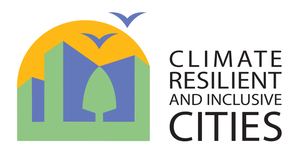Indonesia

With an urban growth averaging 4,4% annually, Indonesia experiences the highest rate of urbanization in Asia (higher than in India and China). It is predicted that 68% of the population will live in cities in the next ten years.
Urban population densities exceed 15,000 habitants/km² in cities like Jakarta and more than 30,000 habs/km² in some inner-city areas. Countries like Vietnam (36% of urban population) and the Philippines (45%) concentrate large urban areas, with fast growing centres . Urban areas host most of the vulnerable populations, as well as vital and social infrastructure, and local governments have increased pressure to develop services, infrastructure, employment (U.N. Habitat).
The overall objectives of the project is to propose a long lasting and unique cooperation between cities and research centres in Europe, Indonesia and other countries from South East Asia, and to contribute substantially to sustainable integrated urban development, good governance, and climate adaptation/mitigation through long lasting partnerships, and tools such as sustainable local action plans, early warning tools and experts panels.
The Specific objectives are:
- To strengthen good governance: continued promotion of good governance, and the necessary policy and legal frameworks to implement urban policies.
- The sustainable use of resources by cities: Climate mitigation and adaptation can be achieved by a better understanding of local resources, and the empowerment of people.
- Social cohesiveness and inclusive cities: The project will pay a special attention to the question of informal settlements, rural migrants and marginalisation.
- Resilience and actions for the environment: the project will support the transition to more resource efficient systems of production and consumption. It will develop early warning systems for the selected cities, and an analysis of the main sources of pollution.
- Prosperity and Innovation in cities, innovation, culture, design, and the identification of sustainable financing mechanisms.
- The promotion of triangular cooperation: will be developed with knowledge exchange and joint trainings among countries from the South and Southeast Asia (Indonesia, Malaysia, Vietnam, Philippines, India, and Nepal).
This project is co-funded by the European Union and led by the cities’ network UCLG Asia.

